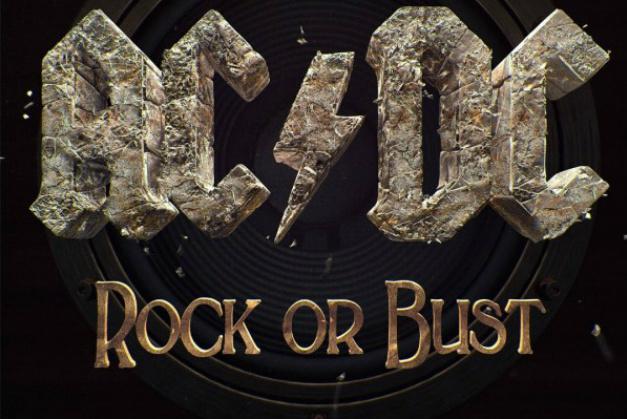By Jon Alba
I do believe it’s important to preface the following with the acknowledgement of myself living and dying by the words of the Reverend Bon Scott in the “Let There Be Rock” music video.
There isn’t an act in music which has had a bigger influence on how I play or listen to music than AC/DC. They’re seen as some of the godfathers of hard rock, a group that has innovated with so little. It’s kept basic; two guitars, bass, drums and vocals. The instrumentation of the songs is far from revolutionary, in terms chord structure and changes, but damn it’s good.
Still, with every album, you know what you’re going to get. And the juggernaut promoting dueling currents hasn’t hid from that. But it seems Halley’s Comet has made more appearances than AC/DC albums have been released as of late; from 1990 through 2008, the band released four records. The last of which, Black Ice, was critically acclaimed, but struggled in its aging process. At nearly an hour in length, it was the group’s most ambitious effort, and some would argue, an overly ambitious one.
Rock or Bust marks AC/DC’s 15th internationally-released studio album, and if it’s the last, they went out big.
The album is the first without core founding member Malcolm Young on rhythm guitar, who is replaced in the left channel by his 58-year-old nephew Stevie. He replaced his uncle in the 80s during the band’s Blow Up Your Video Tour, after the elder-Young went to rehab for alcohol addiction. Those concerned with Malcolm’s absence due to dementia need not worry, as Stevie’s attention to detail and syncopation with his right hand are near-carbon copies of the fashion in which his uncle would have played the tunes.
Photo courtesy: AC/DC
Starting with the title track, the album gets off to a thunderous start. Immediately upon first listen, anyone who has listened to an AC/DC album from the last 20 years will notice a major difference in sound. As lead singer Brian Johnson notes they are “a guitar band,” we realize it may never be truer than on this album. Producer Brendan O’Brien, who returns for his second effort with the boys after Black Ice, very clearly put emphasis on adding grit to the six strings, on both ends. The guitars a the punchiest they have been since Fly on the Wall, which is also credited to lead guitarist Angus Young’s usage of the The Schaffer Replica system given to him by die-hard AC/DC fan Fil “SoloDallas” Olivieri.
After the stomping first selection, we move on to “Play Ball,” which immediately calls back a vibe similar to that of the mid-tempo hit that was “Rock N’ Roll Train” six years earlier. Baseball fans will recognize it as the tune TBS used to promote is Major League Baseball postseason coverage, but it’s a lot more than that. Dueling rhythm with a crafty riff by Angus keeps things tight, though admittedly, there is a little more to be desired with his solo. The now-troubled Phil Rudd’s drums drive the track forward, and you realize “Rock or Bust” is already a lot more rock than bust.
“Rock The Blues Away” follows suit as the attractive cousin to the unusually poppy single off the previous album, “Anything Goes.” Johnson’s vocal melody is unmistakably similar, which may upset some. Ever since the pen was taken from Johnson in 1990’s The Razors Edge, AC/DC’s lyrical presence has largely lacked. This was remarkably present in Black Ice. The words on this composition are more coherent, but nothing brilliant. Johnson sings of “playing pool with [his] friends” and “smoking cigarettes,” but the interplay between the two Youngs is undeniably catchy. Many will dislike this track, but others will put it among their favorites on the album.
As we move into “Miss Adventure,” we go on to a song that could have fit tightly on The Razors Edge alongside a track like “Thunderstruck” (sonically, not compositionally). A point of contention for some with this album will be O’Brien’s poppy take on backing vocals, which has a slight touch of 80s-style gang caroling. My response would be this is the kind of arrangement that made songs like the aforementioned “Thunderstruck” work commercially, but I understand the notion. This is the first nasty lick we get on this album, and there’s a few more to come. The chorus is infectious, though perhaps not in a great way for some. It works personally on this end (alongside the fact Johnson mentions “hot-crossed buns” in the second verse).
“Dogs of War” follows, and appears to be another cousin of a Black Ice track, “War Machine” (for more than just the title). It’s growly and features what appears to be Angus on “Dirty Deeds”-style backup vocals. The riff bounces along the lower part of the guitar’s neck, as powerful choruses respond to the title’s call with “soldiers of fortune.” Bassist Cliff Williams, who is very prevalent in the mix on the album, thumps away, as Stevie’s isolated rhythm in Act I remind me of the aggressive tone heard during Live at Donington in 1991. The album is rocking hard at this point, something these guys know how to do quite well.
Unfortunately, one of the weaker songs on the album follows up one of the strongest with “Got Some Rock & Roll Thunder.” For the first time in decades, we hear the return of claps to an AC/DC tune, and is that a rack tom I hear in the opening drum interlude? Williams shines with some bass movement, but not a whole lot else is going on here. Stevie’s Gretsch twang is prominent, but I’m not sure it’s enough to hold this one up high in regards to the rest of the album.
Following is “Hard Times,” which seems to be self-commentary in regards to what the band has gone through regarding Malcolm, and inadvertently, Rudd. It’s punchy and groovy, and probably would have fit well on 2000’s Stiff Upper Lip. Johnson says “hard times sure ain’t been good to me,” but it’s infectious in its groove nonetheless. It’s one of the simpler songs that won’t stand out, but it fits nicely in the realm of the 11 tracks.
Then there’s a treat. “Baptism By Fire” is the song that could have fit well with just about any AC/DC album of the Bon Scott or early Johnson days. Its lick is a vintage Young creation at its finest, and the band birthed a rocker here. It’s fast, up-tempo, and the lyrics make sense. Johnson warned in an interview not to drive a car while listening to this one, because you may get pulled over. I agree.
“Mistress, mistress, all night long!” Johnson exclaims in the very beginning of “Rock The House,” and all of a sudden, we’re caught in the middle of a Jimmy Page-inspired force of nature from the guitars. They continue their dominance by responding to Johnson’s calls in the verse, and instantly, we’ve got a powerhouse track. The problem? It’s drastically short at 2:43 (the shortest on the album), and it lacks a memorable chorus. I feel as though they may have mailed it in a little on this one.
My biggest gripes with the album move from here. “Sweet Candy” starts strong with the signature intense vibrato of Angus’ original SG, and makes way for a monster rhythm attack. But then what happens? There is a lot more to be desired here, including some much-needed rhythmic changes (though there is a nice little Blow Up Your Video callback here). And it should be noted, Johnson sounds fantastic and may shine the most on this track.
Rock or Bust comes to a close with the funky and once again, Zeppelin-inspired, “Emission Control.” Sometimes, you have to be reminded this is a band of men in their 60s rather than a group of pre-pubescent boys based on their innuendos. The riff is very mean, and the drums pop huge on this track, though I’m not sure this should have been the album closer. The lyrics are a bit harder to make out in this one, and backup vocals are very prominent (among the most on any AC/DC song ever, I’d argue). I also find it interesting they choose to close the album by fading out rather than an emphatic thud, which would have fit the motif of the album better.
Final verdict
This album is way more rock than it is bust. It is a satisfying listen all the way through, the first time this has genuinely been accomplished, in my opinion, since at least Flick of the Switch. There’s no fat on this record; it’s all been trimmed off by O’Brien, which was needed. Angus unleashes the beast on a lot of the solos, way more so than Black Ice. Johnson, at age 67, also stands out as sounding as good as he’s sounded in the last 15 years.
On the negative, I do believe the 34 minutes and 55 seconds go by a little quickly. Some of the songs, such as “Rock The House” are a tad underdeveloped, which contributes to this. I’ve listened to the album start to finish about 11 times now, and I can’t say I’ve grown tired of it, but there are some tracks I’m starting to see could be skippers in the future. There are some noticeable edits in the mixes, which is to be expected with any band these days, and I’m not sure all will like the “poppy” sound O’Brien brings to AC/DC. I’ve noted some of the backup vocals, but Johnson appears to be doubled on nearly everything, which is not terrible in industry workings, but in some, may even be tripled. This will irk some “truer” AC/DC fans for sure.
Still, this is a return to form for a band that has no reason to keep going, except for preserving the righteous being that is rock and roll. Rock or Bust is an excellent effort of self-commentary, and AC/DC puts out its strongest effort in quite some time.
Grade: 8/10












